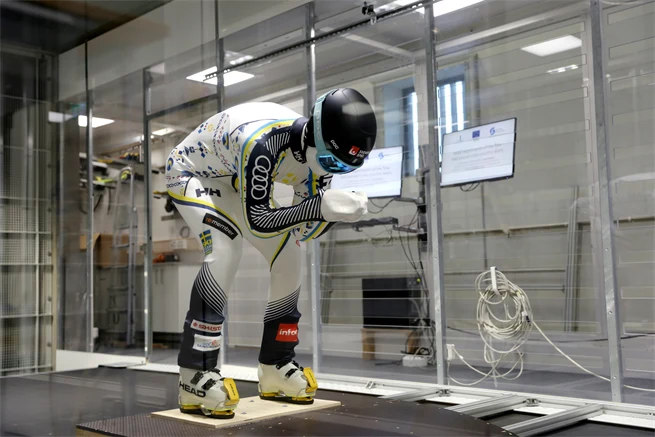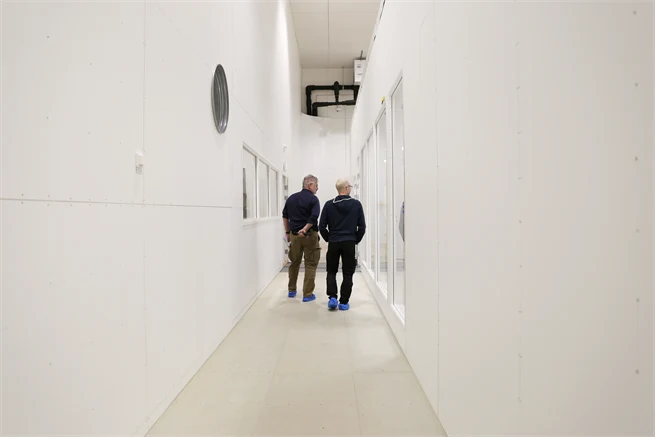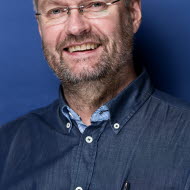av
Augmented Sports event 27 September 2023
During the almost five years that the project Augmented Sports has been running, several scientific articles have been published and over 60 companies have received help with everything from product development to tests in the lab.
"It has been an interesting period of time to run a project with such a great deal of collaboration with the surrounding community. We hadn't been up and running for a year before we were in the middle of the covid pandemic. This meant that we had to change the way we worked. But the follow-up research shows that we more than met the goals that were set," says Mikael Bäckström, project manager and centre director for the Sports Tech Research Centre.
A strong focus has been on close collaboration with the region's companies and organizations to strengthen their product and service development with innovative technology content.
"We quite quickly got a large number of companies and organizations that wanted to collaborate with us and therefore set up a new process on how we could make a selection, which worked really well.
During Augmented Sport's final seminar, all collaboration partners were invited and several of them presented cases from the research project, including Ergostone, Hilleberg, Klättermusen and Trangia.
"It was fantastic to be able to invite everyone to a final event where both companies and universities could show the positive effects that the project has resulted in. We are now also seeing a closer link between research, education and the business benefits of our activities, not least through the fact that students we educate come out and can make a difference in the regional labour market.
"The program during the final event was certainly well filled, but we still didn't have time to present everything we wanted about our business. There is a lot left to say about the project benefits. For those interested, there is always a final report to take part in, Mikael Bäckström advises.
The researchers' ambitions have also included the development of internationalisation work with a desire to attract partners from other countries.
"The research that has been conducted has been successful with a good publication rate and citations, which is important for other researchers.
With several programmes linked to the research environment, there are also natural spin-off effects that the project has resulted in, says Mikael Bäckström.
"Research projects may not include education, but collaboration with the companies in the labs often entails other collaborations such as degree projects. In this way, companies receive additional support, which in turn often leads to the employment of trained engineers.

A wooden test dummy that has been developed as a degree project by students Linus Hermansson and Rasmus Blixt at the Sports Technology Programme at Mid Sweden University is based on a real alpine skier. The test manikin has been produced as part of one of the sub-projects in Augmented Sports.
During the time that the research project Augmented Sports has been ongoing, the research group has worked with different learning outcomes.
"We have worked actively to learn from the project's operation and how we can become even better at running broad projects. We have made a special effort related to learning, which has yielded good results. This includes revising things like how we set up meetings, both internal and with companies, to make them as efficient and creative as possible.
"Another learning process is how goal-setting can be even more accurate. You can set goals that may need to be adjusted because the research points in a different direction. However, the important thing is that you get results from the research that are useful.
The insights that have emerged during the course of the project will continue to develop, as will the great focus on sustainability issues that has increased at the research centre over the past ten years, says Mikael Bäckström.
"We have many ideas that are very interesting, especially in the area of sustainability. Many of the companies we work with are local or regional and relatively small. For them, it is very important to be able to find good staff who can work in their company. They may also need help in the development of their products. Here, with our support, we can contribute to economic sustainability.
"We also work with sustainability that concerns social aspects or equal opportunities, not least applications in parasport. In addition, there is a strong focus on developing sustainable materials such as non-fossil polymers or non-fluorinated agents for impregnation and dirt repellency.
With new lessons learned and continued strong collaboration with the surrounding community, Mikael Bäckström is optimistic about the continued work at the Sports Tech Research Centre.
"We have a fantastic team that, despite major challenges, has delivered such good results in the project. The fact that we reached out and were able to continue working with more than 60 entrepreneurs despite a pandemic is a good acknowledgement of our work. It's great fun!

Mikael Bäckström is the project manager and Jonas Danvind who has acted as assistant project manager during most of the research project.

The page was updated 8/12/2025